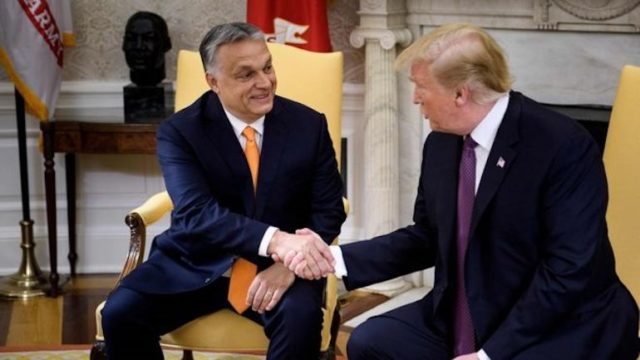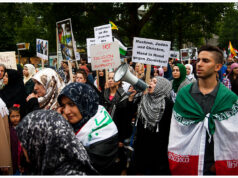Despite the fact that the Trump administration has spent two years communicating its concerns with Hungary regarding academic freedom, anti-Semitism, and other illiberal positions of the Hungarian government, the visit of Prime Minister Viktor Orbán to the White House for a meeting with President Donald Trump has set off alarm bells — primarily among those already inclined to disapprove of the president’s guest list.
A former Obama staffer summed up the concern, saying, “It still remains rightly shocking to see Trump cozy up to authoritarian leaders. The American President should be supporting democratic allies with shared values rather than autocrats who are actively undermining U.S. interests.” (This from an administration that believed that the Islamic Republic of Iran should be legitimized and concluded diplomatic, trade, and travel agreements with Raúl Castro’s Cuba.)
Hungary and other Central European countries are complicated, and shunning them is likely to create more problems. These are NATO members, former Warsaw Pact members, E.U. members, bound to the West in ways that make their future a key interest of the United States and the rest of Europe. And, on the other side, Russia.
But their 20th century history diverges from that of Western Europe — NATO was designed to keep Russia out of Europe, but by the time NATO got there, the USSR had already gobbled up Central Europe. “Eastern Europe” was always a misnomer, designed to elide the fact that Russia’s armies were in part of what was traditionally considered just “Europe,” including part of Germany.
Hungarians, Croats, Serbs, Bulgarians, Czechs, and others correctly think of themselves as twice occupied — once by Hitler and once by the USSR. Now they are free to be Hungarian, Croatian, Serbian, etc. This has, for many of us, both positive and negative ramifications — none of which is equivalent to the Iranian practice of hanging homosexuals or stoning adulterers.
Some of these countries are unwilling to accept their role in the Holocaust, which ranged from outright collusion to Albania being the only country in Europe to end up with more Jews than it started with. Their claim that that “the Nazis” did it and since they were also victims of the Nazis, they cannot be responsible is specious. They are writing their history their way — incorrectly and self-centeredly — rather like Rashida Tlaib’s incredible statement that Palestinians gave comfort and safe haven to Holocaust survivors who made it to pre-state Israel.
Central Europeans, unlike their Western European and many American counterparts, don’t believe in “multiculturalism.” They don’t believe in widespread immigration. They don’t like “others.” They don’t believe that “others” can be assimilated. Western Europe’s current experiences play an important role in the formation of their opinions.
They are nationalists — which has two main components:
- They believe in “peoplehood” as an ethnic and cultural community; it is the remains of very old tribal communities. They see peoplehood as what we used to call patriotism, love of country, and love of one’s history. And it is one reason they have good relations with Israel. They understand that the State of Israel as the national expression of the Jewish people. That’s hard for some Western Europeans.
The flip side of “peoplehood” is this:
- They can be exclusionary — which is why they’re not so sure about Jews other than Israelis, and why they’re very sure about Muslims.
Both of those are, in varying ways, good, bad, and very bad. Europe and liberal Americans don’t care much about 1 (and in fact, some think 1 is really bad), and they believe that 2 is grounds for the excommunication. (Unless the offender is of a “protected class.” The fact that Palestinian leadership announces that no Jews will be permitted to live in the putative state of Palestine — rendering it by law more Judenrein than any Central European country — doesn’t seem to affect European determination to create that state.)
Most important, from the American point of view, Central Europeans don’t want to be told what to do or what to think — which is why they’re happy with Russian president Vladimir Putin in general and unhappy with the West in general. Putin wants political reliability, but the West wants to change their culture. The West — particularly the E.U. — wants to tell them what to do andwhat to think — while demanding that they pay E.U. taxes.
Having the West shun them, sanction them, run them into the ground, etc. is precisely what Putin is waiting for — he will pick up the pieces. He is already picking up the pieces, accounting for Orbán’s much improved relations with Russia.
If this pattern continues, watch for the return of the Warsaw Pact — not in its old military form, but kinder and gentler, in which Putin tells them he will protect their heritage. Putin is himself a post-communist nationalist, so they’re speaking the same language.
This is not a case of embrace them or execute them — the United States should always stand for individual liberties and rule of law. We should work with other countries — most especially in Europe — to keep NATO intact and the continent peaceful.






